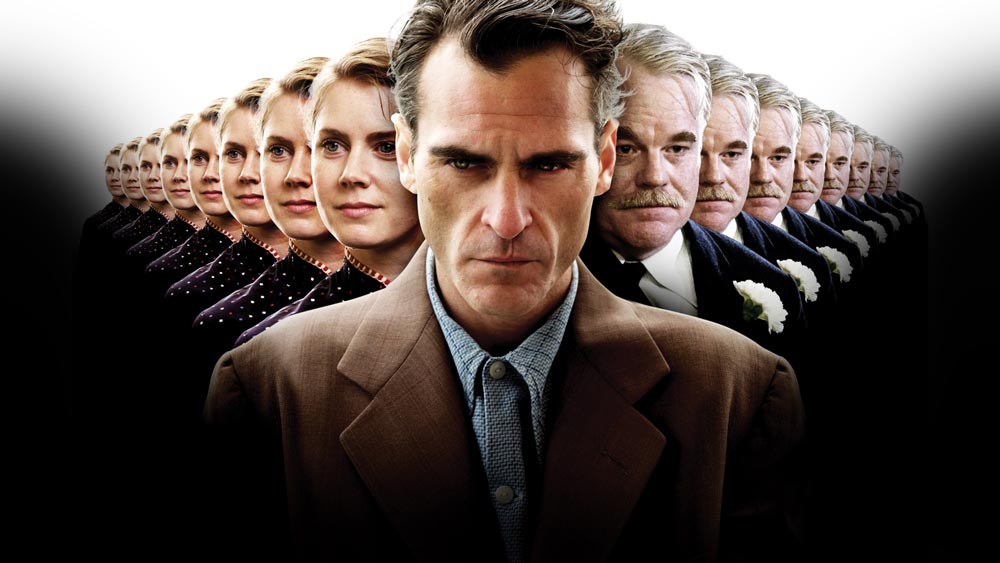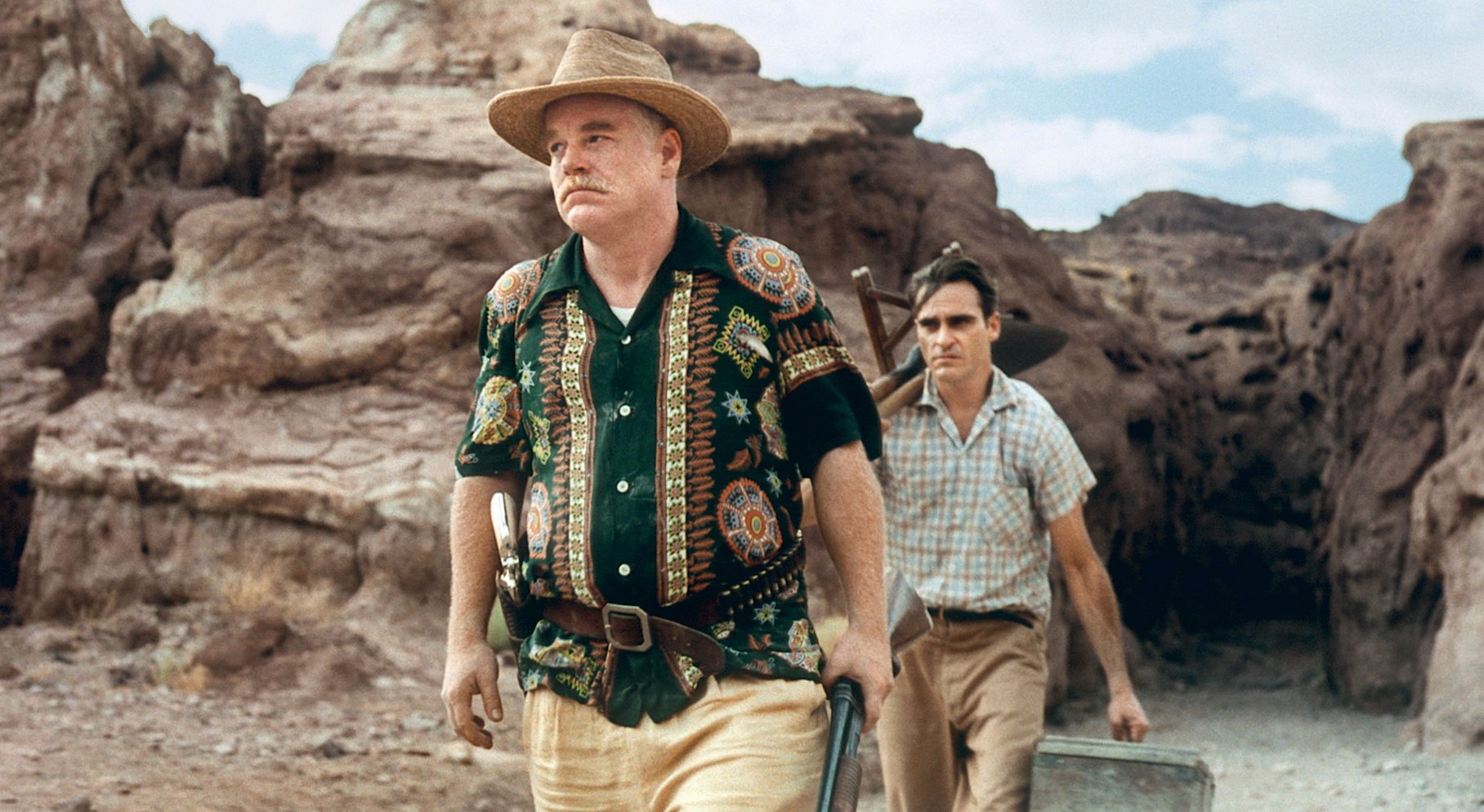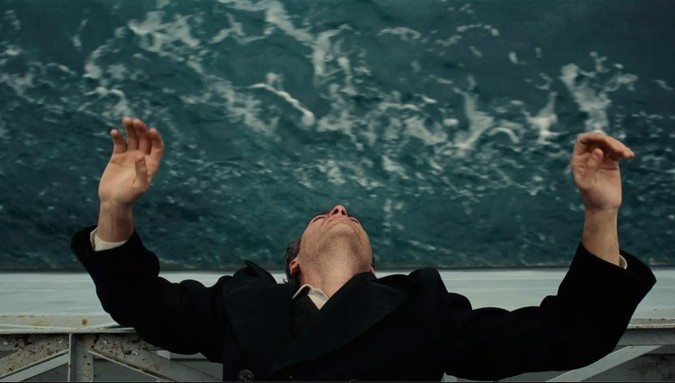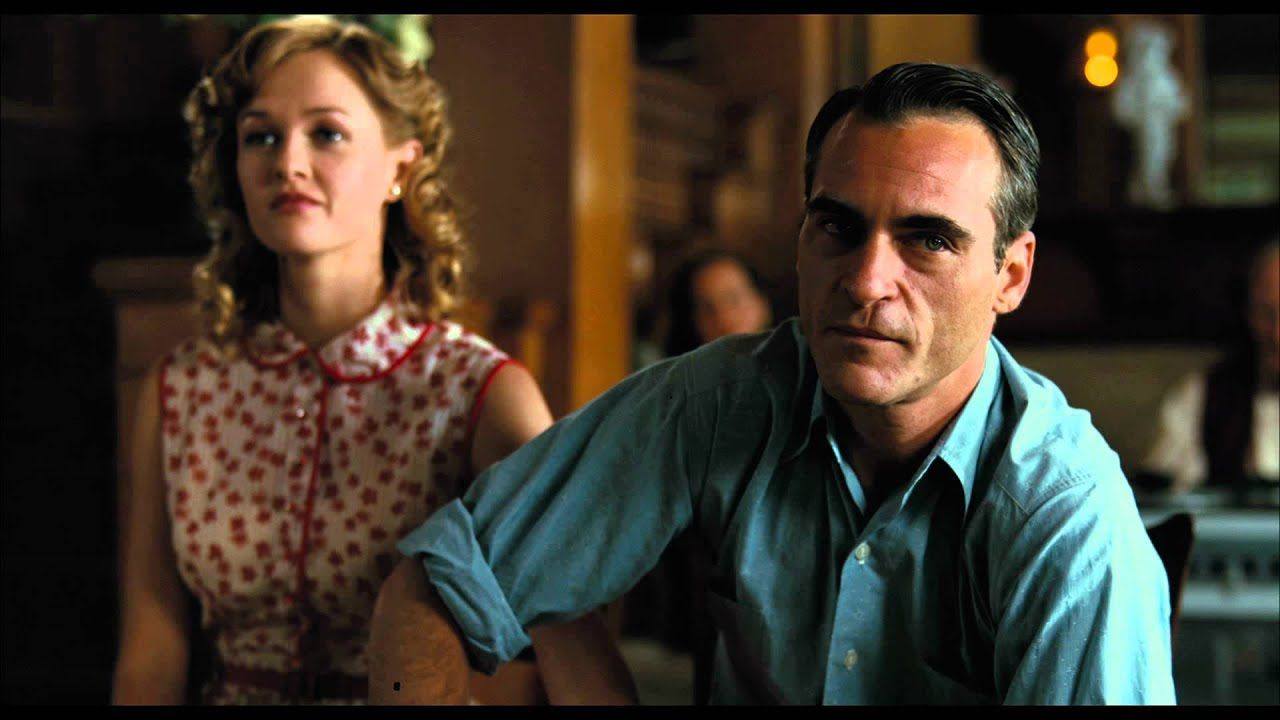The Master (2012)

The Master (2012), directed and written by Paul Thomas Anderson, is a psychological drama that explores the complexities of power, control, and personal identity. The film stars Joaquin Phoenix as Freddie Quell, a troubled World War II veteran, and Philip Seymour Hoffman as Lancaster Dodd, the charismatic leader of a controversial cult-like movement. Along with Amy Adams, who plays Dodd’s wife, Peggy, the film delves into the deep psychological struggles of its characters, offering a nuanced portrayal of human relationships, belief systems, and the search for meaning in a post-war world.
At the heart of The Master is the turbulent relationship between Freddie and Lancaster Dodd. Freddie, portrayed by Joaquin Phoenix, is a damaged and emotionally volatile man who is struggling to find his place in a society that seems indifferent to his suffering. He’s a war veteran with a penchant for alcohol and violence, and his inner turmoil is palpable throughout the film. When he meets Dodd, the leader of a movement called “The Cause,” Freddie is drawn to the power and control that Dodd seems to offer. Dodd, played by the late Philip Seymour Hoffman, is a man of immense charisma and self-assuredness, but his teachings and methods are far from benevolent. He manipulates Freddie’s vulnerability to further his own ambitions, offering Freddie a sense of purpose while also keeping him subjugated to his will.
The dynamic between Freddie and Dodd is one of the film’s most compelling elements. As Freddie becomes more involved with Dodd’s movement, the lines between admiration, manipulation, and dependency blur. Freddie’s need for acceptance and a sense of belonging makes him susceptible to Dodd’s influence, while Dodd’s complex motivations make it unclear whether he genuinely believes in his cause or is simply using people for his own gain. This power struggle is central to the film, as it reflects the broader theme of the search for meaning in a world that often feels uncertain and chaotic.
Amy Adams delivers a standout performance as Peggy Dodd, the supportive and manipulative wife of Lancaster Dodd. While Dodd is the face of “The Cause,” it’s Peggy who is the true mastermind behind the movement. Adams plays the role with quiet intensity, giving Peggy a chilling presence that contrasts with the more overt charisma of her husband. Peggy’s control over Freddie and her influence within the group showcase her ability to manipulate and control, making her an essential figure in the film’s exploration of power dynamics.

The Master is also a meditation on the concept of belief and its role in shaping identity. The film examines how individuals, like Freddie, seek meaning in their lives through systems of belief, whether they are religious, philosophical, or personal. Dodd’s movement offers Freddie a new identity, but it also forces him to confront his own limitations and flaws. The film suggests that belief systems, while offering a sense of direction, can also be traps that limit personal growth and self-understanding. The tension between freedom and control, belief and skepticism, is a recurring theme throughout the movie.

Visually, The Master is stunning, with Paul Thomas Anderson’s direction and Robert Elswit’s cinematography capturing the bleak yet beautiful landscapes of post-war America. The film’s production design and use of color highlight the emotional and psychological states of the characters, adding another layer of depth to the narrative. Anderson’s meticulous attention to detail creates a world that feels both immersive and emotionally raw, reinforcing the themes of isolation and searching for belonging that run throughout the film.

In conclusion, The Master is a haunting and thought-provoking film that offers a complex exploration of power, belief, and human nature. Through the compelling performances of Joaquin Phoenix, Philip Seymour Hoffman, and Amy Adams, the film delves deep into the psyche of its characters, questioning the very nature of identity and the forces that shape us. Paul Thomas Anderson’s direction and the film’s visual storytelling make it a cinematic experience that lingers long after the credits roll. The Master is a rich, layered narrative that challenges its audience to reflect on the nature of control, the search for meaning, and the complexities of human relationships.











